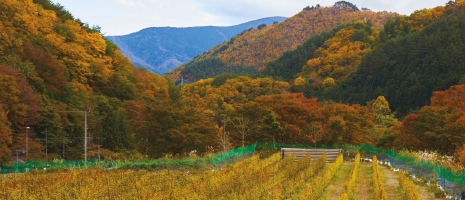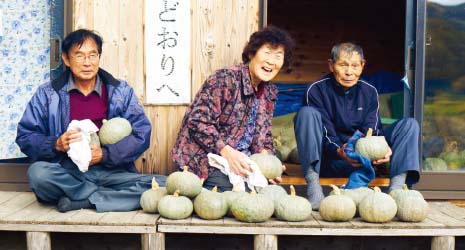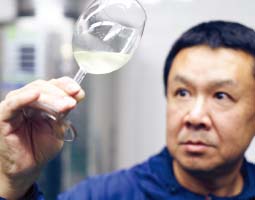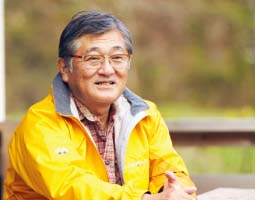Home > Highlighting JAPAN > Highlighting Japan January 2019 > Japanese NPOs Working for Change
Highlighting JAPAN


Reviving Spirits and Livelihoods Through Community
Tono Magokoro Net is an NPO set up soon after the crippling Great East Japan Earthquake in 2011. Two of the NPO’s key representatives talk about how they support affected areas along the coastline of Iwate and even overseas.
After witnessing the horrendous damage the Great East Japan Earthquake on March 11 in 2011 caused, Kazuhiko Tada decided he had to do what he could to help. As he visited many refugee shelters, he asked what people needed and helped to deliver necessities. By the end of March, even as he continued visiting shelters and removing debris, he had established an NPO called Tono Magokoro Net.
During his visits, the Tono Magokoro Net director realized how many people were exhausted from spending long periods in shelters and were mourning the loss of loved ones. Many refused to associate with other people or even to go outside. Without motivation or something to do, people tended to stay indoors.
Tada felt this was dangerous, and wanted to create an environment in which evacuees could take action themselves rather than having outside supporters do everything for them. He created an area called Magokoro Hiroba, which had soup kitchens and cafés where people could get together and exchange information. Volunteers ran it at first, but gradually the duties shifted to locals. Tono Magokoro Net created many Magokoro Hirobas in various locations and created job opportunities for locals, who sell boxed lunches or run the cafeterias.
People not only need a home, clothes and food to survive, they also need a livelihood. Without employment, people cannot get their life back on track or rebuild a community to live in. Magokoro Net currently operates employment centers in Otsuchi Town and Kamaishi City in Iwate Prefecture along the Sanriku Coast. This facility introduces jobs to disabled people according to their abilities, ensuring that they will not be left out of the process of community restoration. The jobs include farming, making crafts out of fabric and adding labels on food products and wine bottles in factories that Tono Magokoro Net operates. Some of the food products are actually based on recipes from women in Tono’s Komedori district. Despite having an average age of seventy, the nineteen citizens of Komedori have been cooperating with Magokoro Net since 2013. Their locally made watercress-flavored salt is one of their most popular products.
Tono Magokoro Net operates a social cooperative farm and winery, creating wine produced from grapes grown at the Magokoro employment center in Kamaishi and the Kanpu district in Tono. People with disabilities run these farms. According to the winery director, Yusuke Kotani, they sold 350 bottles in 2018 and he predicts they will sell about a thousand bottles next year.
“Despite being an NPO, we have to function as a normal company and manage a business,” Kotani responds when asked why he began the winery business. He collected funds, created the farm’s layout, and even assisted in the cultivation of the land. Kotani hopes the wine will keep people from forgetting about the earthquake, while hoping they will choose the wine for its delicious taste.
“While creating businesses, I’d also like to create an environment where people with disabilities and elderlies can work normally,” says Tada. During the autumn of 2018, he formed a local industry partnership association as a joint project with some other companies, along with a new venture business in Nepal and Indonesia—two countries that have experienced earthquake damage. By accepting and educating foreign trainees, Tono Magokoro Net hopes to energize new businesses there as well. Using the hard-earned knowledge gained from past experiences, Tono Magokoro Net intends to generate more employment opportunities throughout the world and support places in need.
© 2009 Cabinet Office, Government of Japan









